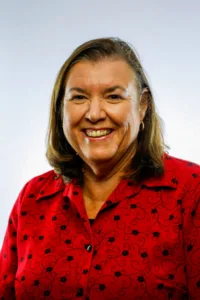If you're under the age of 34, you may be more willing to commit insurance fraud, according to new University of Georgia research.
The new study suggests that the younger you are, the more likely you may be to deceive a company or adjuster to get desired funds or outcomes.
But some fraudsters might not realize they're committing a crime when they do.
"Many people, especially younger people, have an adversarial relationship with insurance companies," said Brenda Cude, lead author of the study and a professor emerita in the UGA College of Family and Consumer Sciences. "If you're pushed into a position of thinking you need to fight, maybe that pushes people into actions that they wouldn't otherwise consider, especially if they're not aware that it's technically illegal. There are lots of major consequences that could come from that."
2 out of 5 in younger generations unfazed by insurance fraud
The researchers relied on data from the Coalition Against Insurance Fraud, which surveyed almost 1,500 adults about their thoughts on insurance claims.
Among other questions, the survey asked respondents if they would:
- Consider or had included damages that happened before a car accident on a claim (or if they had done so in the past).
- Leave out information or provide false information on an insurance application to get better coverage or a lower premium.
- Help a medical provider bill for treatment they hadn't actually received and more.
Respondents were also asked if they knew anyone who had committed one of these crimes.
(Someone) might think it's a good idea to tell the insurer their car is parked at their parents' house when it's actually in downtown Atlanta. But that's technically fraud."
-Brenda Cude, College of Family and Consumer Sciences
Two out of five respondents between the ages of 25 to 34 said they were OK with the fraudulent actions taken in the scenarios.
They saw it as a smart way to save money or a way to help a friend out of a tough situation.
"Age was significant. Part of that may be the impersonal way that younger adults relate to insurance companies," Cude said. "They think, 'I'm not hurting a person if I commit fraud. This is just a website.' They might think it's a good idea to tell the insurer their car is parked at their parents' house when it's actually in downtown Atlanta. But that's technically fraud."
Generational divide may reflect ethical, moral differences
Younger generations' more carefree attitudes may affect their willingness to engage in insurance fraud, the researchers said.

Only about 5% of those 55 and older signaled that they were OK with fraud. Cude suggested that there might be a connection between age and ethics, with older respondents reflecting a stronger moral compass.
Millennials and Gen Z only changed their minds on insurance fraud if they perceived serious consequences; quick, wide-scale harm from their actions or felt bad about it.
"The younger generation just might have a weaker connection to morality and have a situation-based code of ethics. It doesn't bother them to do things, even if they know that they're wrong, because they think they're getting cheated and in the right," she said.
People don't like insurance companies or understand what constitutes fraud
Overall, the way people felt about insurance companies was unanimously bad - regardless of age. That feeling is unlikely to change and won't impact whether people commit fraud, Cude said.
But one possible explanation for younger generations' apathy toward insurance fraud may be that they don't know what actually qualifies as fraud or how fraudulent claims may impact others.
"We need to think more about how to approach younger folks in terms of insurance fraud. Part of that solution might be experience, but maybe part of that solution is also education," said Cude. "I don't think people really understand their insurance very well or the difference between a legit claim practice and something that is actually considered fraudulent."
Education might include learning how insurance works as well as why insurers make the decisions they do.
This study was published in the Journal of Consumer Affairs and was co-authored by Hanchun Zhang.






